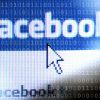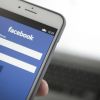-
 +4 +1
+4 +1Smart doorbells 'easy target for hackers' study finds
UK watchdog Which says consumers are at risk of having their home networks compromised.
-
 +21 +1
+21 +1Chinese hackers have pillaged Taiwan’s semiconductor industry
Taiwan has faced existential conflict with China for its entire existence and has been targeted by China's state-sponsored hackers for years. But an investigation by one Taiwanese security firm has revealed just how deeply a single group of Chinese hackers was able to penetrate an industry at the core of the Taiwanese economy, pillaging practically its entire semiconductor industry.
-
 +14 +1
+14 +1Twitter says hackers downloaded data from up to 8 accounts
The data could have included direct messages and other information. Twitter said these accounts were not verified.
-
 +4 +1
+4 +1Nintendo suffers huge leak, source code and design files for Wii appearing online - Nintendo Everything
A few days ago, leaks started to surface regarding some of the older Pokemon games. We were able to get a look at tons of beta designs from the Gen 2 era, which was followed by even more earlier sprites and other assets. Apparently, this Pokemon content was just a larger portion of an overall huge Nintendo leak. Source code for older systems, Spaceworld ’99 demos, and more have started to appear online.
-
 +29 +1
+29 +1Marriott hit by second data breach exposing “up to” 5.2 million people
Marriott International has announced that it has been hit by a second data breach exposing the personal details of “up to approximately 5.2 million guests”.
-
 +14 +1
+14 +1Chinese hacker group caught bypassing 2FA | ZDNet
Chinese state-sponsored group APT20 has been busy hacking government entities and managed service providers.
-
 +24 +1
+24 +1Hackers steal data for 15 million patients, then sell it back to lab that lost it
Canada’s biggest provider of specialty laboratory testing services said it paid hackers an undisclosed amount for the return of personal data they stole belonging to as many as 15 million customers.
-
 +25 +1
+25 +1Hackers Hit Click2Gov Bill-Paying Portals in 8 Cities
In 2017 and 2018, hackers compromised systems running the Click2Gov self-service bill-payment portal in dozens of cities across the United States, a feat that compromised 300,000 payment cards and generated nearly $2 million of revenue. Now, Click2Gov systems have been hit by a second wave of attacks, dumping tens of thousands of records onto the dark web, researchers said on Thursday.
-
 +20 +1
+20 +1Hacker Finds They Can Kill Car Engines After Breaking Into GPS Tracking Apps
A hacker broke into thousands of accounts belonging to users of two GPS tracker apps, giving him the ability to monitor the locations of tens of thousands of vehicles and even turn off the engines for some of them while they were in motion, Motherboard has learned. The hacker, who goes by the name L&M, told Motherboard he hacked into more than 7,000 iTrack accounts and more than 20,000 ProTrack accounts, two apps that companies use to monitor and manage fleets of vehicles through GPS tracking devices.
-
 +20 +1
+20 +1Hackers Used Facebook Quizzes to Steal Data from 60,000 Users
It’s been a tumultuous few months for Facebook. A data breach in fall 2018 exposed information about 30 million of its users to hackers. Only a few months later, the company was also criticized for paying individuals to voluntarily install an app that collected information about their smartphone habits. Now, it’s dealing with concerns that some of the quizzes available on the platform have been used to collect data from unsuspecting users.
-
 +22 +1
+22 +1Marriott Concedes 5 Million Passport Numbers Lost to Hackers Were Not Encrypted
Marriott International said on Friday that the biggest hacking of personal information in history was not quite as big as first feared, but for the first time conceded that its Starwood hotel unit did not encrypt the passport numbers for roughly five million guests. Those passport numbers were lost in an attack that many outside experts believe was carried out by Chinese intelligence agencies.
-
 +32 +1
+32 +1Marriott breach leaves 500 million exposed with passport, card numbers stolen
On Friday, Marriott International announced a system breach that has affected approximately 500 million customers, with stolen information including names, credit card numbers, mailing addresses, email addresses, and passport numbers. The breach is one of the largest in history, after recent Yahoo breaches that compromised the accounts of nearly three billion customers.
-
 +19 +1
+19 +1Hackers erase 6,500 sites from the Dark Web in one attack
One of the most popular Dark Web hosting services – Daniel’s Hosting – was slaughtered last week when attackers hosed it clean of about 6,500 hidden services. The admin says they’re gone for good: he hasn’t even figured out where the vulnerability is yet. The administrator at Daniel’s Hosting is a German software developer named Daniel Winzen, who acknowledged the attack on the hosting provider’s portal. Winzen said that it happened on Thursday night, a day after a PHP zero-day exploit was leaked.
-
 +10 +1
+10 +135 Million U.S. Voter Records for Sale on the Dark Web
The data that is being offered for sale comes from updated statewide voter lists, and includes millions of full addresses, phone numbers, and names. Personally identifiable information and voting history is included in the databases. Apparently, at least 19 states appear to be affected, and 23 million records for three of the 19 states.
-
 +25 +1
+25 +1Hackers stole millions of Facebook users' highly sensitive data — and the FBI has asked it not to say who might be behind it
Thirty million people have been affected by a massive hack of Facebook, with the attackers gaining access to millions of victims' highly sensitive personal data. On Friday, Facebook provided more details about the attack that it first disclosed two weeks ago — and said the FBI had asked it not to discuss who might be behind the attack.
-
 +14 +1
+14 +130 million user accounts stolen in huge hack, Facebook says
Some 30 million user accounts were stolen in a huge hack of Facebook, the company has confirmed. The breach – the worst in the company’s history – appears to have been carried out by an unnamed attacker, Facebook suggested. It said the FBI was “actively investigating” the hacker, and that it had “asked us not to discuss who may be behind this attack”.
-
 +24 +1
+24 +1Your Account On Facebook — And Websites That Use Facebook Login — Could Be Compromised. Here's What We Know.
Facebook recently disclosed that the security of 50 million profiles was compromised when attackers stole “access tokens” that allowed them to break into these accounts. Facebook discovered the breach Tuesday, Sept. 25, and it reset access tokens, forcing users to log back in to their accounts, on Thursday, Sept. 27. The company disclosed the attack last Friday. In addition to Facebook accounts, the stolen access tokens may also compromise accounts on any third-party website that uses Facebook Login.
-
 +8 +1
+8 +1Celebgate hacker jailed over 2014 attack
A man who hacked into the Apple iCloud accounts of Hollywood stars, including Jennifer Lawrence, has been sentenced to eight months in prison in the US. The notorious Celebgate hack resulted in nude photos and videos of Lawrence and other celebrities stolen and posted online. George Garofano was one of four people charged in the 2014 hacking scandal.
-
 +12 +1
+12 +1Ticketmaster malicious hackers steal private customer data
Ticketmaster has admitted that 40,000 of its customers’ credit card details and personal information has been leaked in a data breach. According to the ticket sales website, it was hit by malicious software on Saturday via one of its third-party suppliers. Anyone who has attempted to buy tickets off the website between February and June this year could be affected by the breach.
-
 +9 +1
+9 +1Data Breach: Chili's Grill & Bar customer payment information hacked
Customers who visited certain Chili's Grill & Bar restaurants between March and April may have had their payment information stolen by hackers according to a notice released by Chili's parent company Brinker International last week. According to the notice originally issued on May 12, the company learned of the data breach the day before. Additional information released by Brinker suggests that malware was used to gather guest payment information, including credit and debit card numbers, cardholder names, and potentially expiration dates and CVV codes.
Submit a link
Start a discussion




















